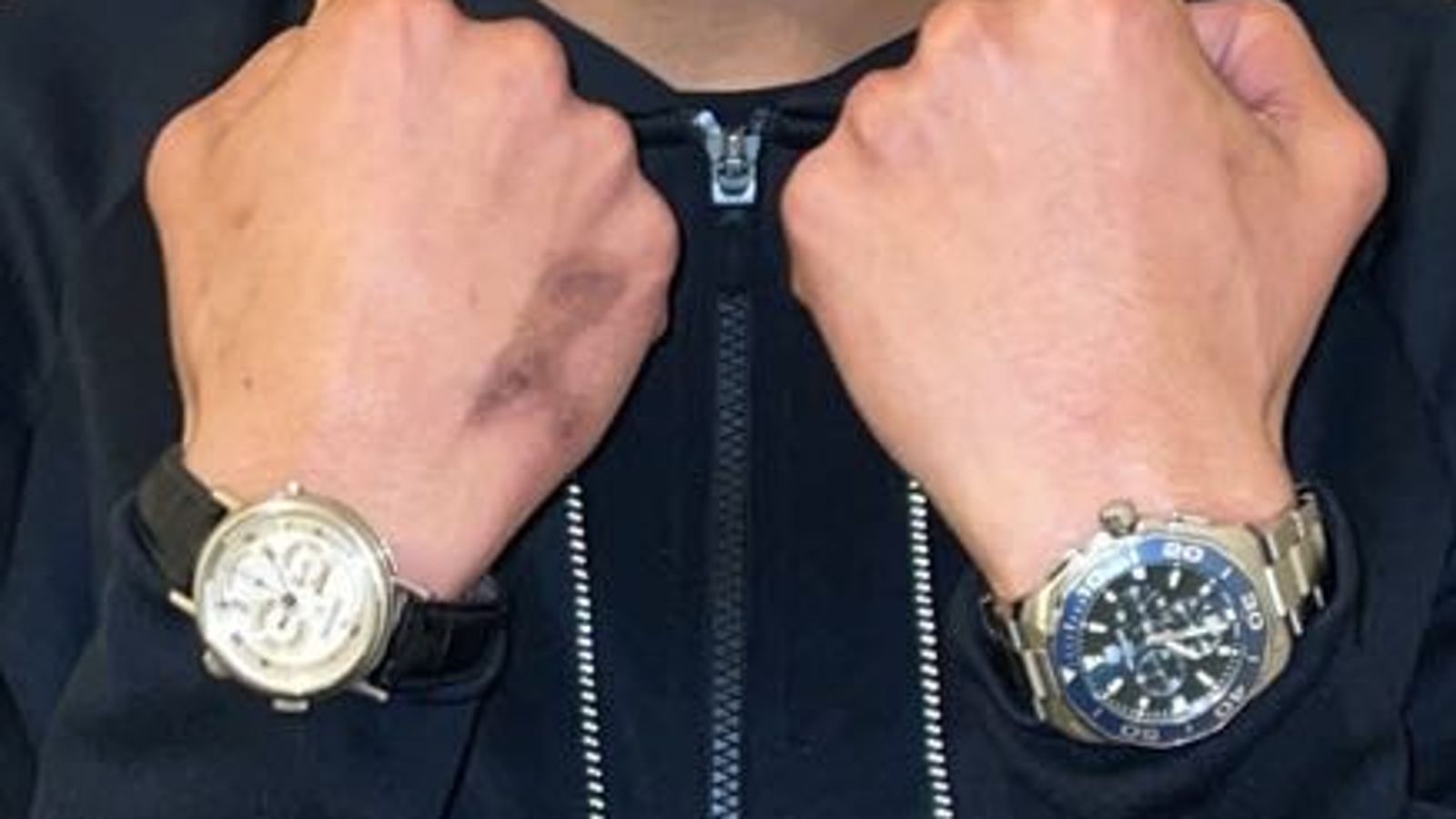Selling stolen watches ‘now more lucrative than drugs’ – and some victims fear for their lives

Stealing expensive watches and selling them on the black market has become a criminal enterprise “more lucrative than drugs”, according to a former dealer forced to retire after being violently robbed three times.
Paul Thorpe said a week’s worth of stealing high-end watches in London could make “more money than some people would earn in a lifetime”.
“It’s an industry all in itself. And I think in many areas, it’s actually overtaken drugs as the crime of choice for some criminal gangs,” he said.
“Drugs are obviously very dangerous to carry or to transport, whereas watches are very small and very rarely questioned. As an example, you can’t get on a plane with a kilo of cocaine, but you can get on a plane with a million pounds worth of stolen watches and I very much doubt anyone will even bat an eyelid.
“The criminal gangs know this, and they use that to their advantage.”
Since 2015, the number of stolen watches recorded in England and Wales has nearly doubled – from 6,696 then to 11,035 last year, data from Watchfinder.co.uk shared with Sky News shows. More than 6,000 were in London.
The enterprise has been bolstered by soaring demand for second hand watches, which has seen the value of these pieces nearly double in just a few years.
‘Is he going to kill me?’
Nick Triggs and his wife were robbed of their Rolexes while spending the day in South Kensington last January. He feared the gang would kill him.
Advertisement
“A black BMW screeched to a stop beside me. The door opened, the guy gets out and smashes me – I think with a knuckleduster – on the left cheekbone,” he recalled.
“I fall backwards, down to the car, and I look up and there is another person showing me a 15-inch machete with a grey gun metal blade, and serrated edges.
“I look up to him, I’m groggy, I’m disorientated, and I think ‘is he going to kill me?’
“The first guy then shouts: ‘Give us your watches!’ – so we hand them over, and they race off.”
Mr Triggs’s cheek was broken in three places, he lost several teeth and was left with permanent nerve damage. But he said the psychological damage is the most severe.
“It’s a mental scarring that lives with you in the back of your mind,” he said. “All for the sake of a couple of watches.”
Gangs ‘wait outside restaurants and bars’
Mr Triggs’s wife was able to take down the BMW’s number plate, and – after a police helicopter chase through central London – the gang were caught and later convicted over a rampage of violent robberies.
They are due to be sentenced in June, but they’re just one gang among countless others who have caught on to a lucrative model.
Mr Thorpe said thieves most-often use spotters to target wealthy areas, waiting outside high-end bars or restaurants, or even watch shops to see who leaves with a bag, before confronting them in the street or following them home.
Sometimes spotters work as waiters, or drivers, and text ahead to the gang to let them know who to target. Others will stalk social media sites, looking out for anyone posing in an expensive watch, with their location clearly visible.
Once the crime has been committed, watches are small, easily concealed, and can be resold at a sizeable profit, with demand and value having rocketed since the pandemic.
‘People are getting targeted’
At his store, Diamond Watches London, owner Danny Shahid stocks a sapphire encrusted Daytona for £275,000, which last year was going for £200,000.
The watch he’s wearing was £100,000 before the pandemic, but would now go for £185,000.
“Not a lot of watches were produced [during lockdown] so the value of them increased massively,” he said.
“Sadly, that now attracts the wrong attention, and so the people who wear these watches are getting targeted.”
Sky News understands some owners are so scared they are hiring bodyguards, and private security teams, to protect themselves in high-risk areas.
Alex Boden, of Sagacity Security, told Sky News: “We offer services of picking up watches for clients if they don’t feel confident going shopping, or we can accompany clients to pick up their pieces.
“Whether it’s just an hour, before escorting them back to their door, or a few hours if they’re out on a shopping trip.
“We also make sure at the end of the day they haven’t been followed home.”
The National Police Chiefs’ Council’s lead for personal robbery, Commander Richard Smith, said such crimes have a “devastating impact” on victims and leave them with “long-lasting trauma”.
“We continue to proactively target those habitual criminals who can be responsible for a large proportion of offending, alongside engaging with communities to improve education around keeping yourself safe,” he added.